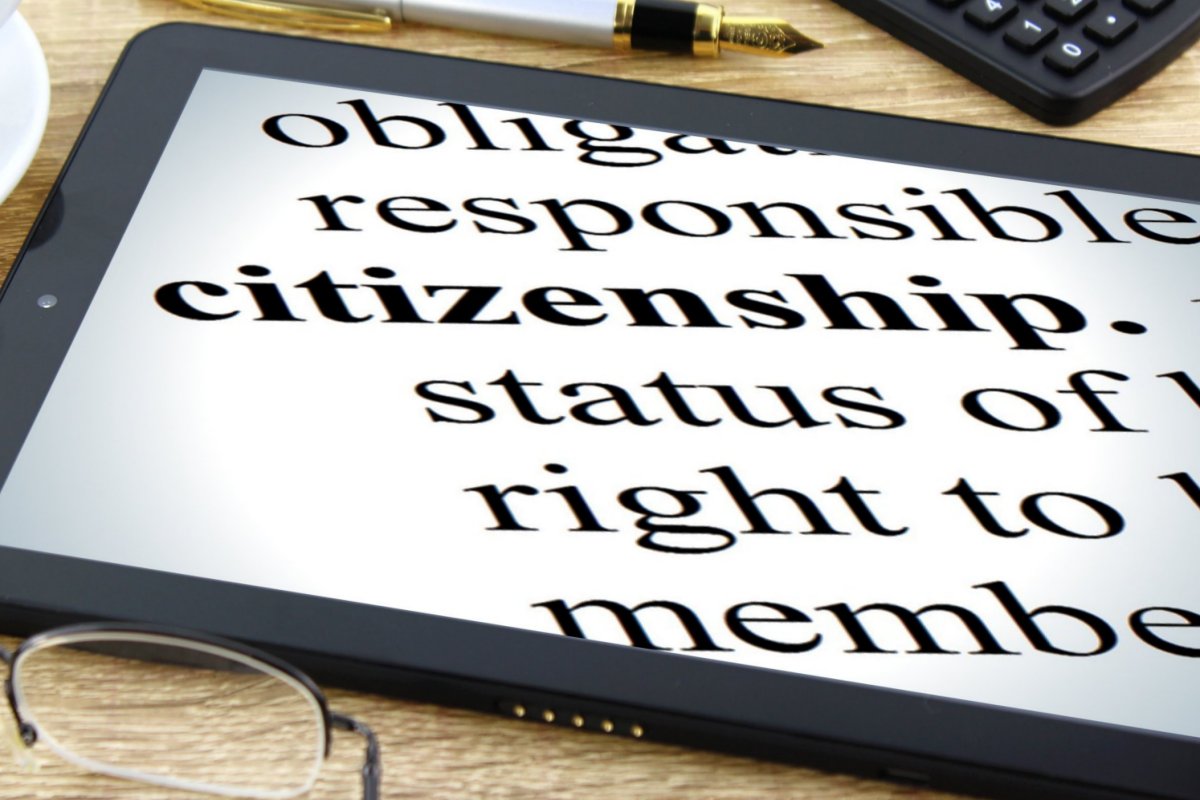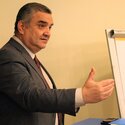Let's Talk Citizenship!

“Without state, there is no free citizenship… otherwise people’s freedom might have turned into primitivism”. This was the core intellectual framework of FreedomCafé Alumni meeting convened earlier this month in Amman spearheaded by Dr. Wajih Kanso, distinguished professor of Philosophy, and director of the Royal Institute for Interfaith Studies in Jordan (RIIFS).
Placing philosophical trend in defining Citizenship within the social contract concept, Dr. Wajih featured the relationship that relates both terms. At start, he illuminated the significance of Citizenship via social contract. He simplified that social contract is “a contract based on individuals who are free, rational and equal. As citizenship is not by default as biological, natural or personal relation, rather it is impersonal interaction between citizens. Kanso adopting humans’ tendency toward “togetherness”, he proceeded that one moves from the blood or intimacy relations; such as family and tribes, or the inner circle, to freely enter impersonal relation (the strangers’ relation). Illustrating three forms of citizenship; Nation-state, union and global or universal, Dr. Kanso sums up that citizenship remains a relation between strangers.
Citizenship, furthermore, is based on two main elements; individuals’ free will and rationality, emphasized Dr Kanso. In this manner, it enters the circle of rational activity and freedom spheres. “…citizenship is the culmination of artistic, creative, and innovative mental activity that I design and create within…”
Citizenship is a process by which only citizens are responsible to find and reconstruct their communities.

Consequently, “Free citizenship is a responsible freedom inside the state.” How? Plainly, he argued that there cannot be freedom without a state, nor a state can survive without free rational individuals. For the relation between the power and citizens for any political system is not coercive or obedient, rather it is a mutual interactive one.
In response to the challenges of citizenship in light of terrorism and recent forced migrations, “could foreign citizenship and democracy models be imposed and implemented in the Arab World?” Dr. Kanso responds: “citizenship is a process by which only citizens are responsible to find and reconstruct their communities’ values and principles that fit into their own culture, and traditions.
Another dimension to the problem is the youth. The distorted images of the Arab Islamic thought after “Da’esh/ ISIS” invasion in the last decade have ripped them off between extremists and terrorists, and to a less extent between denial and hatred for the other. In addition, unemployment, lack of political participation and enrollment in civil society organizations, in part among girls in rural areas of the kingdom, are some of the obstacles. Societal positive values devaluated among the new generation. Thereafter comes the role of universities, schools and society in enhancing the role of youth; encouraging more enrolment in political life and enhance optimal values so that their efforts would pave the road for an Arab Renaissance properly coming to full fruition.